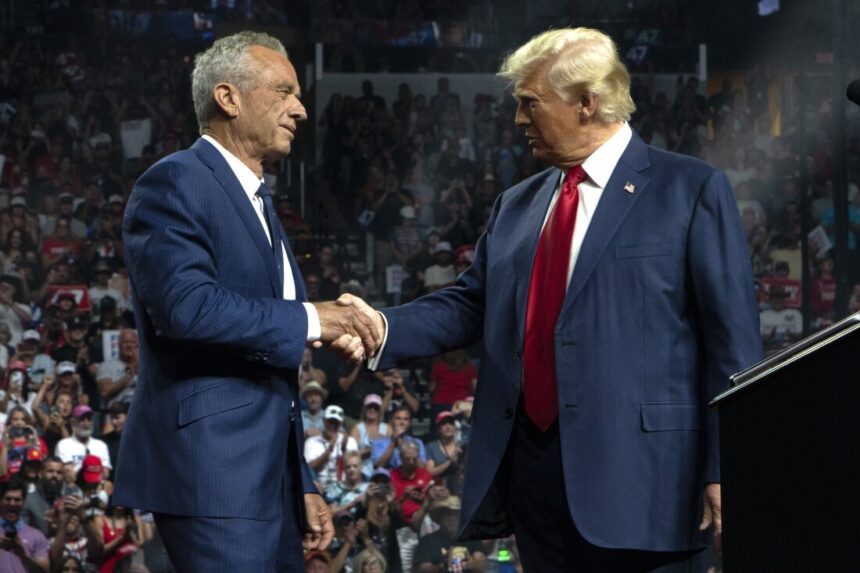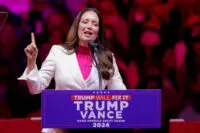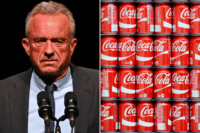RFK Jr.’s nomination as Secretary of Health and Human Services (DHHS) under President-elect Trump has sparked a wave of discussion about his ambitious vision to reshape America’s diet. His proposals, ranging from eliminating ultra-processed foods to overhauling the FDA, promise significant changes to public health and food safety. But are these goals achievable in today’s political and industrial landscape?
Introduction: A Bold Vision to Reform America’s Diet
RFK Jr., a former environmental attorney turned public health advocate, has long criticized the food industry for endangering Americans’ health. Now, he plans to tackle chronic diseases by addressing ultra-processed foods, food additives, and regulatory inefficiencies. But as he takes on powerful industries and a complex bureaucratic system, the question remains: Can his “Make America Healthy Again” agenda succeed?
Context and Background
Who is Robert F. Kennedy Jr.?
RFK Jr. is a controversial figure, known for his outspoken views on health and science. While some critics question his methods and credibility, others applaud his commitment to public health reform. His “Make America Healthy Again” campaign aims to combat chronic diseases by targeting the root causes: poor dietary habits and regulatory shortcomings.
The DHHS and FDA Connection
If confirmed, Kennedy will oversee the DHHS, including the Food and Drug Administration (FDA). This gives him a powerful platform to address issues like food safety, nutritional standards, and public health policies.
Event Details and Proposals
1. The Fight Against Ultra-Processed Foods
Definition and Risks:
Ultra-processed foods, such as sugary cereals, frozen pizzas, and chips, are linked to obesity, cancer, and heart disease. These foods make up a significant portion of the American diet.
RFK Jr.’s Proposal:
Kennedy aims to remove these items, particularly from school lunch programs, to improve children’s health outcomes.
2. Targeting Additives and Dyes
Health Concerns:
Food dyes like Red No. 3 and additives banned in other countries are still allowed in the U.S. Research links some of these substances to behavioral issues and carcinogenic risks.
Regulatory Gap:
Kennedy argues that the U.S. lags behind the European Union in food safety regulations. His plan involves stricter bans on harmful additives.

3. Seed Oils: A Controversial Debate
The Claims:
Kennedy describes seed oils (e.g., canola and sunflower oil) as “toxic,” contributing to chronic diseases.
The Evidence:
While some studies suggest replacing saturated fats with seed oils can be beneficial, critics argue there’s insufficient evidence to label them harmful.
4. FDA Overhaul
Kennedy’s Vision:
He proposes firing FDA employees he believes are complicit in a “corrupt system” and restructuring the agency to focus on food safety and nutrition.
Challenges:
Such drastic changes could disrupt regulatory operations, leading to long-term consequences for public health.
5. Other Controversial Proposals
- Fluoride in Water: Kennedy calls for banning fluoride, despite its proven dental health benefits.
- Raw Milk: Advocates for its consumption, ignoring risks of bacterial contamination.
Analysis and Implications
Feasibility of Reforms
Kennedy’s proposals face significant obstacles, including industry lobbying, political opposition, and bureaucratic inertia. His push to ban ultra-processed foods and additives would require sweeping legislative and regulatory changes.
Public Health Impact
If successful, these reforms could lower rates of chronic diseases, saving billions in healthcare costs. However, implementing them without proper infrastructure could disrupt food supply chains.
Industry Resistance
“Big Food” companies wield immense influence, and Kennedy’s reforms threaten their profit margins. Expect strong pushback from these stakeholders.
Expert Opinions
Supporters:
Marion Nestle, a nutrition expert, praises Kennedy’s focus on chronic disease prevention:
“It’s thrilling to hear someone argue for tackling ultra-processed foods.”
Critics:
Dr. Peter Lurie, former FDA official, cautions against Kennedy’s approach:
“While some ideas have merit, others lack scientific backing or feasibility.”
Conclusion: A Vision Worth Considering?
Kennedy’s agenda to reform America’s food regulations is bold and ambitious. While some proposals could significantly improve public health, others face scientific, political, and practical hurdles. Whether his vision will transform America’s food landscape or remain a lofty ideal depends on his ability to navigate these challenges.
What do you think about RFK Jr.’s plans? Could his reforms revolutionize public health, or are they too far-fetched?
Share your thoughts in the comments below! For more updates on food policy and health, subscribe to our newsletter and explore our related articles on FDA reform and nutrition policy.










